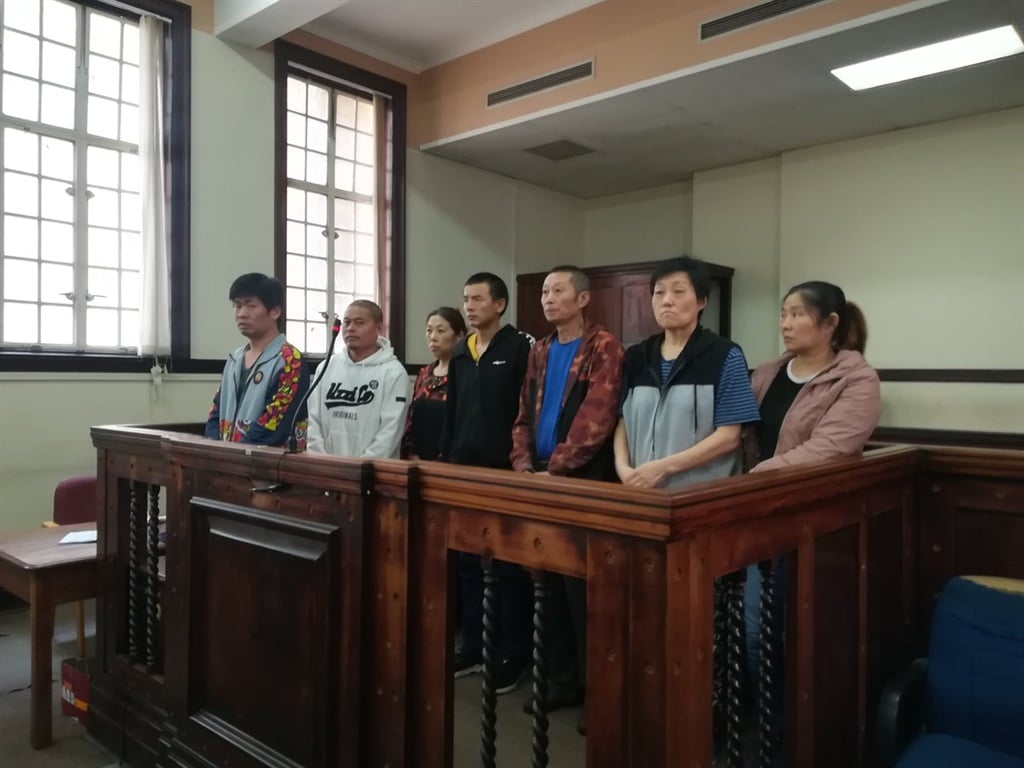
- Seven Chinese nationals are currently on trial in the Gauteng High Court in Johannesburg.
- The seven face charges of human trafficking, kidnapping and violation of labour laws.
- A witness told the court of the "painful" working conditions he experienced at the Johannesburg factory.
A witness, who testified against the seven Chinese nationals accused of human trafficking, was told by the defence that he had committed a crime by entering South Africa without a passport.
"As you are standing here today, you are an illegal immigrant. Do you agree?" advocate Jannie Kruger, for the accused, told State witness Matola Ndika during cross-examination on Thursday.
Responding, Ndika said: "That is true, I don't have a passport."
Kruger said Ndika knew that entering another country without a passport was illegal.
"You knew that entering another country without a passport, you knew you could be criminally charged. So, you were prepared to commit a crime to come to SA. You did commit a crime; you entered South African borders without a passport," he said.
Ndika is currently testifying against Kevin Tsao, Dai Junying, Chen Hui, Qin Li, Jiaqing Zhou, Ma Biao and Zhang Zhilian in the Gauteng High Court in Johannesburg.
He told the court of the "painful" working conditions he and his colleagues allegedly experienced at the Johannesburg factory owned by the accused.
The accused face 160 charges, including human trafficking, kidnapping and the violation of labour laws.
They pleaded not guilty to all charges on 26 April, News24 previously reported.
Poverty
Ndika told the court previously that he arrived in South Africa from Malawi in 2017, when he was 14, because he was trying to get away from poverty.
He said he came to South Africa in a taxi. He said the "transporter" told him not to worry about crossing the border without a passport.
The "transporter" allegedly said he would be the one negotiating their entry into the country.
Ndika said:
"Looking at my circumstances, I just decided to pay the transporter."
He worked for the accused when he arrived in the country.
On Wednesday, he told the court that he was assaulted and called a "mother f-----" by some of the accused - something which he said "was painful" to experience.
"Life was so difficult," he said.
He also told the court that he was paid R65 a day - an amount which he said he could not negotiate.
"Mr Chen told us we are not supposed to go outside because there are a lot of police officers. We just cooperated. I was not happy. At some point, we would need to go out because there was no airtime [at the factory].
"We couldn't buy airtime or see our friends. We were not allowed to use our phones or radio," he said.
He also said the only time they were allowed to use the toilets was during lunchtime - and, if they used it before the lunch hour, they risked losing R20 from their salary.
"The treatment at work was too painful," he said.
The accused were arrested on 12 November 2019 following an operation by the Department of Employment and Labour's inspection and enforcement services branch in Gauteng, the police, the Department of Home Affairs and the Hawks, News24 previously reported.
The accused were allegedly trafficking undocumented immigrants into South Africa and subjected them to forced labour from April 2017 until 2019.
Ninety-one Malawian nationals, including children, were reportedly found in the factory. The trial continues.
